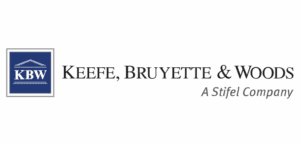How does digital insurance work?
How does digital insurance work?
An insurance provider which depends on technology to transform its operations or customer interactions to reduce the time and cost to provide suitable insurance to customers is called a digital insurance company. They take the digital-first approach for internal and customer-facing operations. Nov 24, 2021
Is Aviva a Quotemehappy?
Quotemehappy.com is a registered trademark of Aviva.
Is Allstate losing customers?
Things are not looking good with Allstate, which has posted its worst auto insurance customer retention numbers in two decades. In 2020, the company’s auto policy renewals were 87.5%, down from 88% in 2019. It was Allstate’s worst policy renewal rate since at least 2001, investor disclosures noted. Feb 5, 2021
Are Esurance quotes accurate?
Esurance is rated 3.3/5 by WalletHub’s editors, based on sample insurance quotes, customer reviews and ratings from organizations such as J.D. Power and the Better Business Bureau (BBB). Esurance reviews from consumers tend to focus on good customer service and fairly low prices. Mar 11, 2022
What is the difference between HealthCare.gov and marketplace?
A service that helps people shop for and enroll in health insurance. The federal government operates the Health Insurance Marketplace®, available at HealthCare.gov, for most states. Some states run their own Marketplaces.
Is Obamacare the same as marketplace?
The federal Health Insurance Marketplace, which is also called the “”Marketplace”” or “”Exchange,”” is the website where individuals can browse various health care plans available under the Affordable Care Act, commonly known as “”Obamacare,”” as well as compare them, and purchase health insurance.
What is the difference between HealthCare.gov and Obamacare?
Obamacare has made the process easier by requiring insurance companies that sell plans on the marketplace to categorize plans into Bronze, Silver, Gold and Platinum standards. Healthcare.gov has tools to help you compare plan costs side by side. Nov 27, 2013
What is CMS HealthCare marketplace?
The federal agency that runs the Medicare, Medicaid, and Children’s Health Insurance Programs, and the federally facilitated Marketplace. For more information, visit cms.gov.
How do I know if I have Marketplace insurance?
Verify your enrollment online Log in to your HealthCare.gov account. Click on your name in the top right and select “”My applications & coverage”” from the dropdown. Select your completed application under “Your existing applications.” Here you’ll see a summary of your coverage. Aug 24, 2017
What plan will have the highest out of pocket costs?
The highest out-of-pocket maximum for a health insurance plan in 2022 plans is $8,700 for individual plans and $17,400 for family plans. Plans with lower premiums tend to have higher out-of-pocket maximums and vice versa.
Is marketplace insurance based on income?
Marketplace savings are based on your expected household income for the year you want coverage, not last year’s income. Income is counted for you, your spouse, and everyone you’ll claim as a tax dependent on your federal tax return (if the dependents are required to file).
Who pays if you buy insurance directly from a marketplace?
With most job-based health insurance plans, your employer pays part of your monthly premium. If you enroll in a Marketplace plan instead, the employer won’t contribute to your premiums.
What is a marketplace app?
An application marketplace is an online store where customers can go to find and purchase applications.
Who is eligible for the Affordable Care Act?
Individuals at all income levels can sign up for health insurance under Obamacare. If you have a household income between 100% and 400% of the federal poverty level (FPL), you may qualify for a premium tax credit or special subsidies that will reduce health insurance costs. Dec 1, 2021
What is the Affordable Care Act 2021?
The ACA was designed to reduce the cost of health insurance coverage for people who qualify for it. The law includes premium tax credits and cost-sharing reductions to help lower expenses for lower-income individuals and families.





